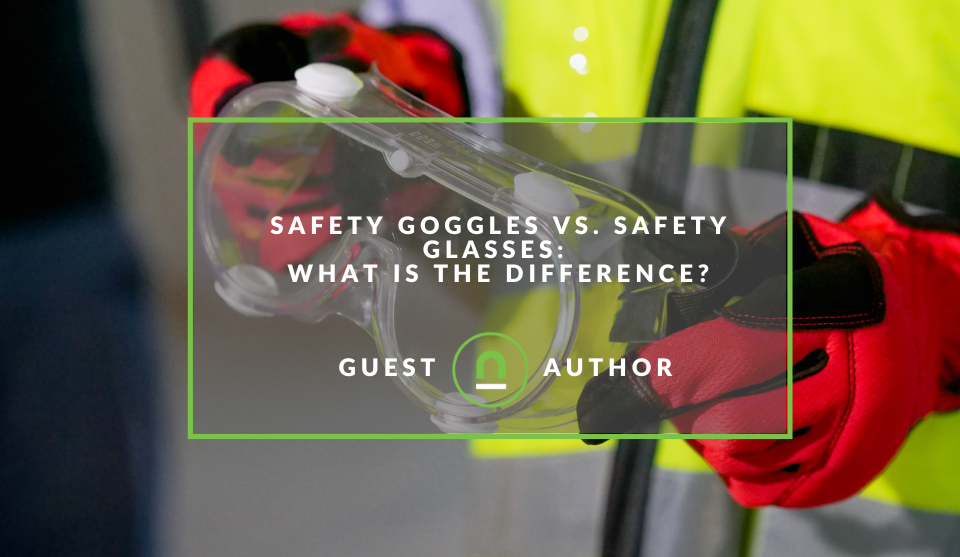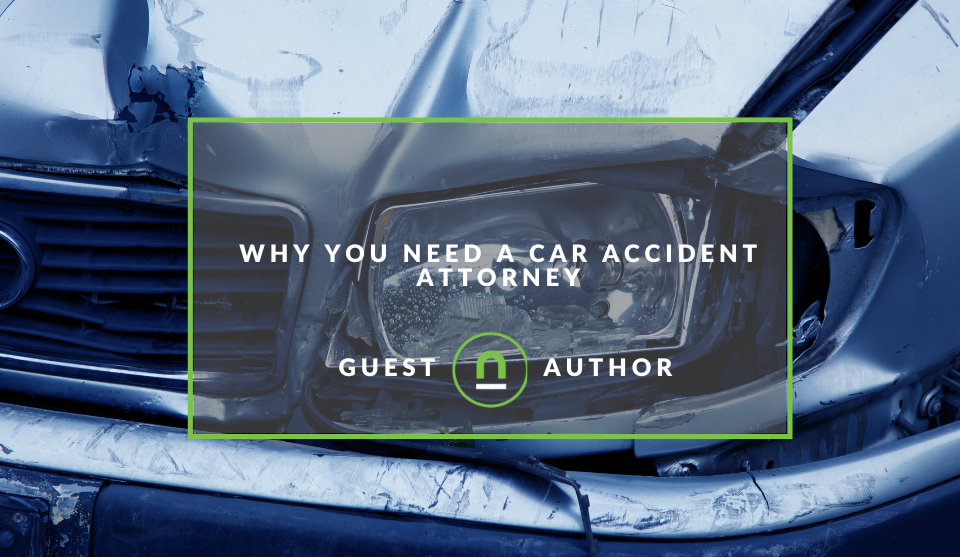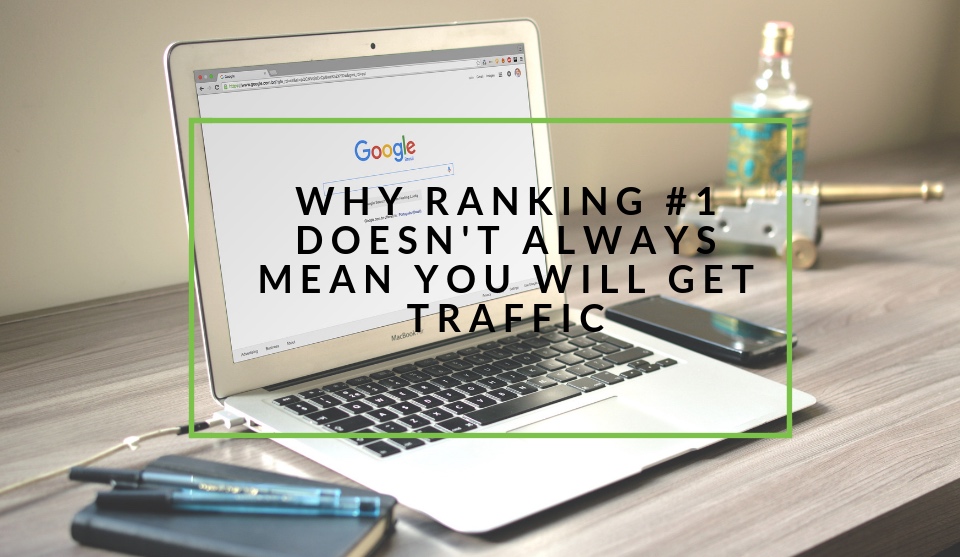Recent posts

Money Talks
How to Create a Long-Term Financial Plan
22 July 2025

Ace of Trades
Safety Goggles vs. Safety Glasses: What Is the Difference?
21 July 2025

Mind, Body & Soul
Is Therapy the Right Choice for Me?
20 July 2025

Petrol heads
Why You Need a Car Accident Attorney
18 July 2025
Popular posts
Extravaganza
Trending Music Hashtags To Get Your Posts Noticed
24 August 2018
Geek Chic
How To Fix iPhone/iPad Only Charging In Certain Positions
05 July 2020
Extravaganza
Trending Wedding Hashtags To Get Your Posts Noticed
18 September 2018
Money Talks
How To Find Coupons & Vouchers Online In South Africa
28 March 2019
Why Ranking #1 Does Not Always Equal Improved Leads or Sales
22 January 2019 | 0 comments | Posted by Che Kohler in nichemarket Advice
Let me start by saying, Yes I realise the title of the post is a bit controversial and leans towards click bait, but I feel it's a question many of you website owners have been asking yourselves.
So let's paint a little scenario, shall we?
- You've got a little WordPress, Wix or Shopify site and it's been running for a while, you're doing a bit of DIY SEO, or you've hired a freelancer or remote worker to optimise your site.
- You're receiving ranking reports, or you've been checking rankings manually, and you have grabbed a few #1 spots for specific keywords
- You check Google analytics but the traffic just isn't coming, and worse the leads and sales aren't either
Sound familiar? I bet it does or you wouldn't be reading this post looking for answers.
Look don't get me wrong, rankings matter, they matter a whole lot. If rankings didn’t matter, I wouldn’t have a job nor would I have spent the last five years of my life monitoring them like a mad man (Not to be confused with Donald Draper)
What does ranking #1 mean?
While rankings do matter and this may sound counter-intuitive, but ranking #1 doesn’t always matter. At least, it doesn’t matter nearly as much as it used to. As an SEO my job is not making you rank #1 that is a by-product of the process. I'm here to improve your reach, target the correct keywords and improve your traffic and leads over time.
In the world of digital marketing, ranking number 1 should never be your ultimate goal. So many business owners have seriously been misled by tracking and focusing on rankings.
As "search" continues to become a more personalised experience ranking will matter less and less as SERPs (Search Engine Result Pages) become more and more dynamic.
But this is not why what you wanted to hear, you want to know why you're #1 ranking isn't shooting out the lights. Well here are the top reasons why ranking number 1 can still mean little to nothing for your business.
Geo-location changes everything
Search results change dramatically factoring in a user’s physical location. Location is one of the most significant hurdles to tracking rankings effectively – your business could rank #1 and #7 simultaneously for the same search phrase based on where the user is searching from and if they are using a mobile or desktop device.
To test this feature why not try Googling the same phrase in Incognito mode on your desktop and mobile at home and work and see how your results vary.
How to fix it
If your business focuses on a specific location make sure your NAP (Name Address and Phone) is consistent throughout all your digital assets to ensure you're feeding Google all the correct information to supply its users with the results.
For more on NAP, check out my post - Why Your Local Business Cannot Be Found Online
If your site services a range of locations, then you should be creating geo-location targetting pages to match with various user searches.
Position zero and the answer box
Google's job is not to rank the best websites but to provide users with the quickest answer to their queries and in some cases, an "instant answer" is just what users want.
We as SEO's refer to this space above search results as position 0, a converted spot reserved for less than 5% of queries, but one business should aim for none the less.
Google can recognise information on sites to provide the best answer to this question and reward sites with a spot in the "Answer Box".
Acquiring an answer box for your site is a challenging thing to do, but a great way to stand out.
We've also seen that position 0 can attract a lot high CTR's than the traditional ten results and over time, this could see your site move up the rankings so you could end up with two spots above the fold, increasing your likelihood of winning that click.
How to fix it
If your competitor is sitting in position zero then perhaps its time to reevaluate the way you style your content. Maybe you have excellent content, but it is not formatted correctly with the right HTML. Perhaps adding a few lists into your post or a summary above or below the main content will encourage Google.
The crawlers can grab as an "instant answer" result from these
Media in SERP take prime real estate
SERPs have become a dynamic media-rich experience, and users now have much more to distract themselves from organic rankings these days than what was once the case.
A standard Google search these days can serve you anything from Ads, Video, Images, Instant answers and knowledge graphs all fighting for attention above the fold while your organic listings keep getting pushed down lower and lower.
It is easy to see that the Knowledge Graph and media draw a lot of eyes (and clicks) away from that number 1 position, removing a ton of potential clicks from your number 1 listing.
How to fix it
Register with Google my business and verify yourself to secure your knowledge graph, you can also add schema to your site to encourage an additional knowledge graph panel.
While on the media front if you see queries you want to rank for have video or images pulling through to search then its time you start competiting. Create competiting photos, make sure images are compressed for superior performance, include descriptive names for your images, add image metadata within the image file, and alt text to your pictures and add an image sitemap to your site.
As for video create a YouTube channel, embed relevant video to your site's webpage and link back to the webpage within the video description.
These tips should help Google find your additional media assets and start to rank them for queries.
Personalisation of search
I've seen this mistake from a couple of noobs and even some senior
Why do I know this? Because you didn't perform your search on incognito. When you search with all your cookies and cache activated Google has a wealth of additional data to pull from, and they use this to personalise your search results. So since you visit your site more than anyone, it's more likely to return a higher result for you since its a preference of yours in the eyes of Google.
How to fix it
You should use incognito mode or better yet stop running manual ranking reports is one way, since to me it's an outdated practice. Oh and another thing is to stop obsessing over ranking number one.
Long tail keywords
It doesn't matter what you're trying to sell a product or service; there are thousands of long tail queries that would turn up your website as a result. Why is this the case?
Well, because everyone searches differently of course. Here are examples of four long tail keywords that would probably index the same results but based on various weightings the order of results would be different.
- Where to buy camping gear
- Camping gear stores near me
- Camping gear for sale
- Camping gear shops in my area
How to fix it
Your goal would be to rank for all of these in the top 1 - 4 spaces and to help encourage them you need to place these keywords across various elements of your pages strategically. One could be in the page title, another in the meta description, another in the H1 header while the lowest value one could be in your on page copy or product description.
Making sure you have a good spread of phrases helps Google assign exact match queries to your page. But remember not to try to keyword stuff and make sure the copy is helpful and reads as naturally as possible, or you will get punched in the face with a demotion in rankings.
Low competition
Low competition is a bit of a tricky one exploits a glaring hole in Google's ranking algorithm. You see Google aims to rank web pages according to the perceived value to the user and match it with user intent.
The problem is that if the competition for the keyword isn't fierce what would have been seen as low-quality pages are now ranking number one.
So your webpage isn't technically the best, but the best of the worst or rather what's available. Users may visit and not find what they want, or you're offering them a terrible experience, so they don't bother converting and bounce.
The alternatives to your page are just as bad or worse, so the rankings don't matter to the user wanting to convert, but the content and the experience on the site.
How to fix it
In this situation, I would look to improve the copy and content on the page in question, revaluate my call to action, review site speed and various user experience metrics that help assist user conversion.
Keyword intent
Keywords come in various shapes and sizes, and people attach certain mindsets to certain words. I like to bucket my keywords into four overarching categories high-level level keywords, mid-funnel keywords and long-tail keywords, questions and voice search keywords.
High-level keywords
A simple way to look at it would be high-value keywords are queries which can be matched with a high level of intent like "Buy PS4 online"
Mid-funnel keywords
These are keywords used by users who have an idea of what they want but are looking at options available to them. A keyword like "PS4 2 controller bundle" would be an example. These users can be converted easier perhaps with one or two repeat visitors and are often the types who respond well to remarketing campaigns.
Long-tail keywords
A long tail query is a keyword users often use as they begin their journey into the purchase cycle but do not have a serious intent to buy. A keyword like "Game shops selling PS4" or "PS4's sold near me" would be an example.
Questions and voice search keywords
These are ordinarily research-based queries or particularly specific queries where users are trying to find out more about the product or service and are slowly building up the interest and internet to purchase. A keyword like "Can you get Netflix on PS4."
Long-tail and question keywords are usually the easiest to rank for, but they're not going to bring customers who are going to fill out that lead form or break out the credit card on their visit, and without the encouragement of repeat visits often you will never convert these visitors into customers.
How to fix it
My advice to you in this situation is to shift your focus to mid-funnel keywords and high-level keywords and start competiting for the visitors that would be willing to do business with you.
I prefer to rank number 5 - 10 for a high level or mid-funnel keyword than rank number 1 for a long tail query.
Finding the right place at the right time
As you can see SEO isn't a straight forward practice and many website owners are getting caught im in the vanity of ranking number one.
I would recommend instead you focus on traffic and on viable search queries that you know are further down the funnel, keywords that can be associated with robust user internet.
Share your story
Have you been struggling for traffic and sales even though you're ranking number 1? Share your stories or tips with us in the comments. We would love to hear from you.
List your business for FREE
Create your free business listing on nichemarket. The more information you provide about your business, the easier it will be for your customers to find you online.
Contact us
If you want to know more about digital marketing for your business, don’t be shy we’re happy to assist. Simply contact us
Recommended reading
If you found this post helpful and have a few more minutes to spare, then head deeper down the rabbit hole with the following articles:
- Why Your Local Business Cannot Be Found Online
- How To Take Advantage of Digital Marketing For Free
- 10 Reasons Why Your Site Doesn't Rank For *Insert Keyword*
- Why Your Site Does Not Show Up In Search Engine Results
- Why Your Homepage Is Holding Back Your Organic Rankings
Tags: google , organic search
You might also like
The Future of On-Page SEO Tools
03 July 2025
Posted by Stacy Minity in Industry Experts
A review of how AI has not only changed SEO but it will also start to apply to SEO on-page tools to change the way crawls are conducted and optimisat...
Read moreCompetitive Intelligence in the Pet Industry
10 July 2025
Posted by Marie Hall in Fur, Fins & Feathers
A guide to data collection, processing and BI techniques to leverage competitive intelligence for strategic advantage and growth in the dynamic pet i...
Read more{{comment.sUserName}}
{{comment.iDayLastEdit}} day ago
{{comment.iDayLastEdit}} days ago
 {{blogcategory.sCategoryName}}
{{blogcategory.sCategoryName}}


